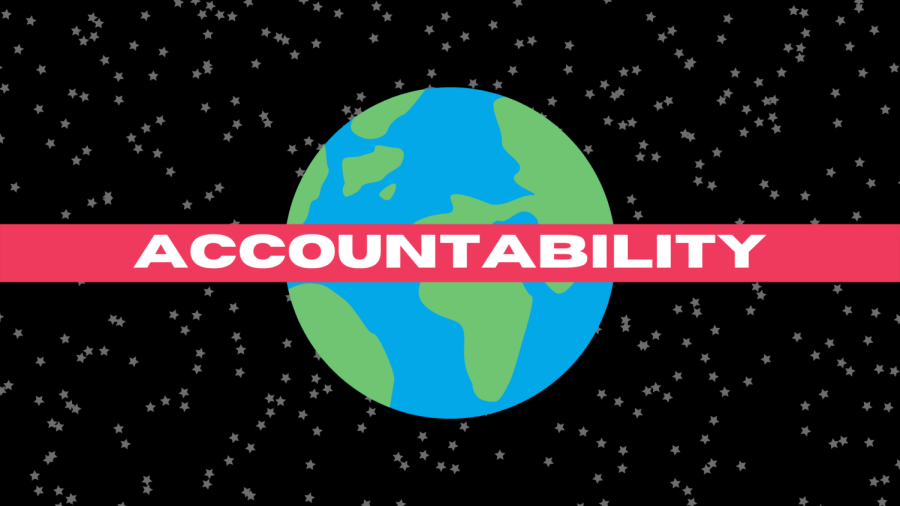Are Businesses Doing Enough to Address Pollution?
Where are we succeeding and where are we falling short?
Companies are quick to boast about their greener policies, but are they really doing their best?
February 16, 2022
When one switches on their television, they often come across commercials from corporate giants boasting about the growing sustainability of their companies. Companies make promises that they are taking steps to become carbon neutral, or to use renewable energy in far-off years, or to use recycled materials in their packaging sooner than later. But as companies continue to make promises on one topic and fall short on the other, one grows apprehensive about just how much global companies are going to try to protect our world.
Corporate Pledges
Several other companies have accepted The Climate Pledge to reach net-zero carbon emissions by the year 2040. The pledge works to “implement decarbonization strategies in line with the Paris Agreement,” both implementing corporate sustainability policies and ensuring that they remain intact. Companies from Visa to HP to Verizon have accepted the challenge, which emphasizes “regular reporting, carbon elimination, and credible offsets. ” With these programs and pledges, several businesses have promised to contribute to a greener earth.
An Example of Benefits: Paper
With more public accountability, industries have begun sustainability programs that promote recycling waste and using recycled materials. The Environmental Protection Agency reports numerous benefits to the use of recycled materials, from the conservation of natural resources to ‘increasing economic security by tapping a domestic source of materials.’ Companies such as Amazon are promising “to make Amazon device packaging 100% curbside recyclable by 2023” which could significantly conserve the materials that go into cardboard boxes; saving on paper and other wood products, thus contributing to the preservation of our trees. This conservation effort has a sort of domino effect: if companies use recycled materials in their packaging, they can fight against climate change by conserving trees, which helps reduce harmful greenhouse gas emissions (which trap harmful UV radiation in the atmosphere) by combatting CO2 emissions.
An Example of Shortcomings: Plastics
While numerous companies have promised to act more sustainably, their actions can prove incongruent with their words. A report by the charity Oceana, published a year after Amazon signed onto the Climate Pledge, calculated “up to 22.44 million pounds (10.18 million kg) of Amazon plastic packaging waste polluted freshwater and marine ecosystems in 2019.” PepsiCo, which has also signed onto the Climate Pledge, has also contributed to a monumental amount of plastic as reported by the Break Free From Plastic Organization, making second place in the “top three global corporate plastic polluters since our first global brand audit report in 2018.” The report recorded 5,155 pieces of plastic across 43 countries as a result of PepsiCo pollution, who as per the Climate Pledge have promised to do better.
So Are Businesses Doing Enough?
The benefits of businesses attempting to do their part are undeniable. They have the potential to reduce greenhouse gas emissions that trap harmful UV radiation in the atmosphere, to promote biodiversity by preserving endangered ecosystems and to provide a cleaner environment for all.
Of course, these benefits are theoretical until we start seeing action from companies who have given their word to do better. Companies must live up to their promises of providing a cleaner and more sustainable environment before they earn the right to boast about their sustainability in PR campaigns. The potential for a better world is there, but the incongruencies between actions and words must be addressed first.













